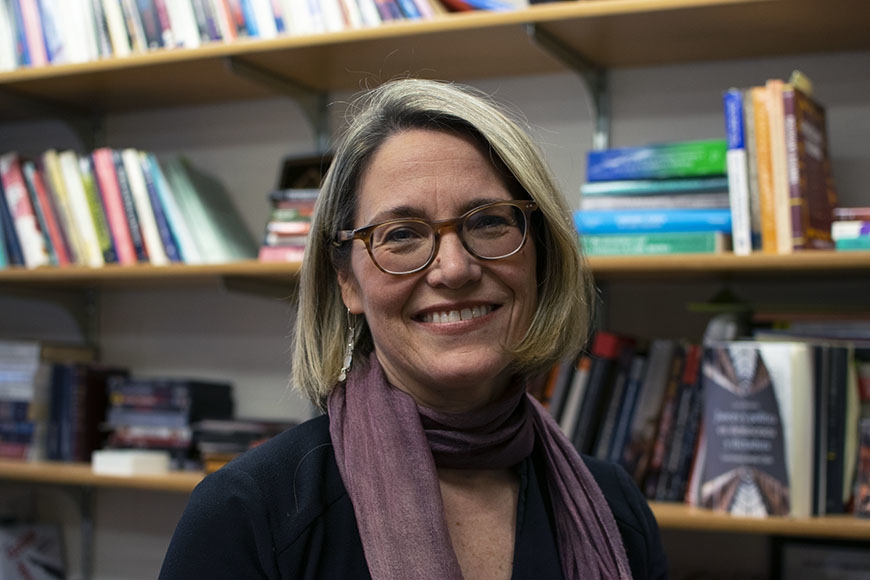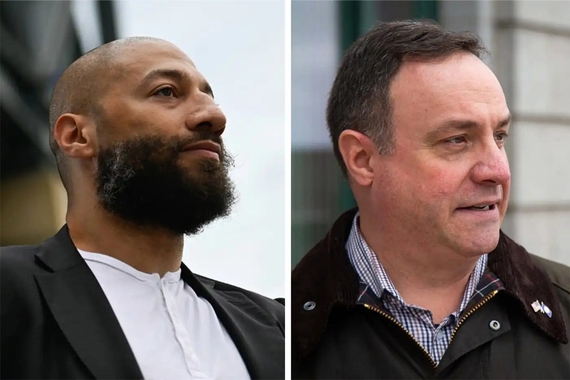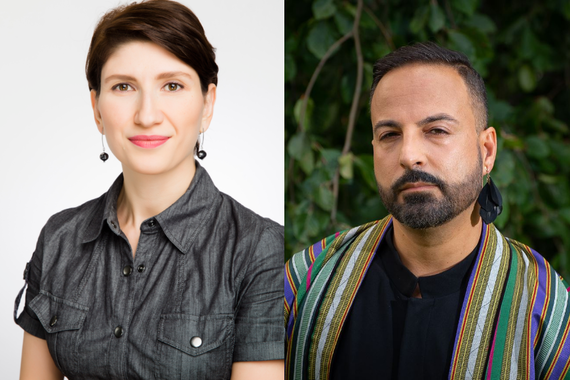A Historic Trip to Chile
A Research Trip Reworked by Popular Mobilizations
Professor Lisa Hilbink studies comparative constitutionalism and the justice system in Chile and Latin America. In recent years, she has been focusing on human rights and popular perceptions of the justice system in those regions, examining how those perceptions affect people’s willingness to turn to the courts when rights are violated.
In August 2017, Hilbink and graduate students Bridget Marchesi and Valentina Salas traveled to Colombia and Chile to conduct research for their project Equal Rights & Unequal Remedies: Understanding Citizen Perceptions of and Engagement with the Judicial System, which was funded by the University of Minnesota Twin Cities Human Rights Initiative.
In November 2019, Hilbink returned to Chile on a previously planned research trip to work with Chilean partners to create an educational program with and for low-income people to develop their knowledge of constitutional rights and legal literacy. On October 18, just weeks before Hilbink was scheduled to make this trip, long simmering tensions exploded into demonstrations and violence, triggered by a hike in the subway fares in Santiago. Unexpectedly, she witnessed firsthand a historic rupture in the legal status quo connected to the Pinochet dictatorship and the beginning of a process to write the first ever constitution with democratic origins in Chile.
It is clear, according to Hilbink, that the subway fare hike was not the cause of the social and political explosion. Instead, “frustration and resentment over entrenched inequality, social exclusion, and perceived systemic injustice led to the social turmoil.”
Quickly, even though the protests were often leaderless, the demonstrators’ demands merged into the call for a new constitution, to be developed in a constituent assembly outside the hands of the established politicians and parties.
For a month, this demand was met by police repression, which included accusations of torture and hundreds of injuries from rubber bullets and tear gas, and a declaration from President Sebastián Piñera that the country was at war with the demonstrators. While the national police responded to this call, the military did not, opening up space for “an avalanche of peaceful participation,” as Hilbink described the broad repertoire of daily mobilizations in October and November. These peaceful daytime demonstrations and gatherings, which were frequently followed by street violence and looting in the evenings, dominated Chilean society for much of the autumn (late spring in Chile).
Attending a Cabildo, Witnessing Real Life
Instead of leading workshops as planned, Hilbink accompanied and adapted to the agenda of her Chilean collaborators. On Sunday, November 10, the day Hilbink arrived in Santiago, she attended a cabildo, or a town-hall-type meeting of citizens, called by a neighborhood board. More than 100 people gathered to discuss the current constitution, how it affects people’s lives, and the process of writing a new constitution. This cabildo was one of hundreds organized since the start of the uprising.
“As a political science professor who teaches a course on comparative constitutions, rights, and democracy, I was in awe,” says Hilbink. “These are the kinds of issues I try to get my students to understand and debate in class, and this was no simulation; it was real life!”
On Tuesday, November 12, “the demand for a constitutional refounding reached a fever pitch,” according to Hilbink. A variety of unions and social organizations held a general strike, which closed universities, businesses, and the national Congress and blockaded many roads and freeways. “In this context of a nationwide mobilization, the National Association of Judges issued a statement in support of a new constitution.”
Toward a New Constitution
That evening, the largely peaceful general strike was followed, as usual but in expanded form, by looting and the setting of fires in several major cities. Hilbink was holding her breath with the rest of the country as it was announced that President Piñera would give a speech at 9:00 pm. Contrary to some expectations, when Piñera finally emerged at close to 10:30 pm, he announced that his government would be moving forward with plans for a new constitution.
By Thursday, November 14, intense negotiations between the government and opposition party leaders had begun. After a full day and night of negotiating, an agreement was reached that called for a referendum that would ask two questions: 1) Do you want a new constitution; and 2) What type of body should write the new constitution—a mixed constitutional convention, composed half of sitting congress members and half of specially elected representatives, or a constituent assembly elected uniquely for the purpose of writing a new constitution?
Hilbink explains, “This agreement marks a major achievement of the Chilean citizenry. The Chilean people, through their persistent mobilizations over the past month, opened up a path that seemed impossible a few weeks before. They now have the opportunity to move definitively beyond the dictatorship and to escape the bounds of a constitution that has made it impossible for elected majorities of the past thirty years to pursue social policies at odds with the neoliberal socioeconomic model imposed during the Pinochet era.”
What’s Next?
While nothing is guaranteed and everything could change before the referendum on April 26 or during the constitutional convention, Hilbink will be watching and analyzing the process closely.
In January, she received a CLA Seed Grant for Social Science Research to help fund a two-wave panel survey in two low-income communities in Santiago. The survey will examine respondents’ understanding of themselves as citizens and rights bearers, in addition to the options they perceive and knowledge they have about where and how to make claims on the state in the context of the constitutional process.
To advance this project, she will be spending the University’s spring break in Santiago, a week in which several major mobilizations have already been announced. Chile’s powerful feminist movement is leading the first two of these mobilizations, which are organized around International Women’s Day on March 8 and include a general feminist strike on March 9. Hilbink will also return to Chile for the plebiscite on April 26. The events that she witnesses first hand will provide ample research opportunities and examples to bring back to the classroom for further study.


